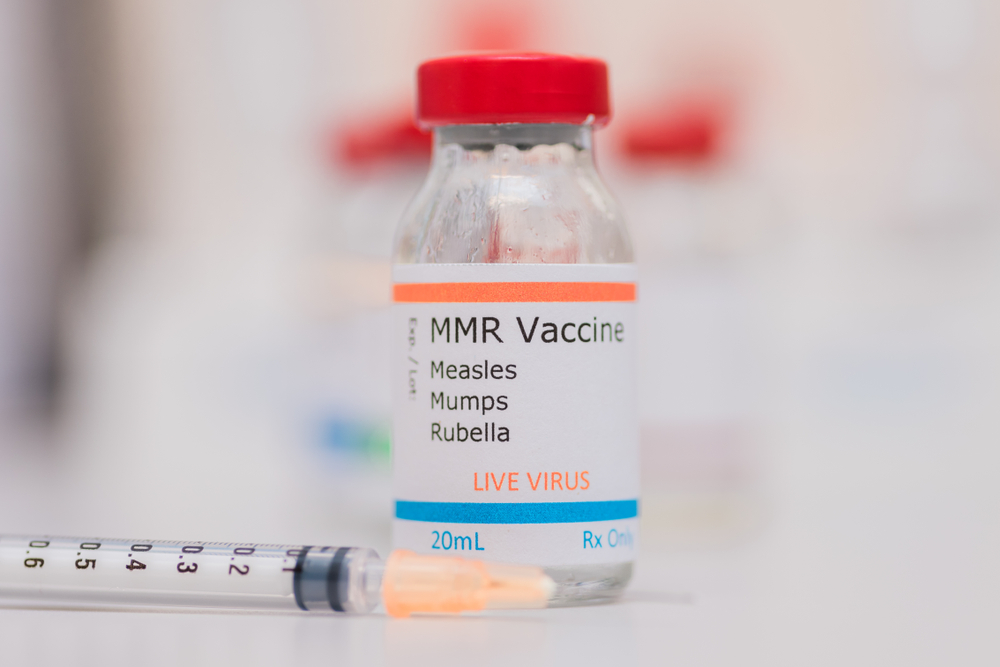
MMR vaccination is a priority for GPs as measles cases rise
Across Europe and the UK, health authorities are warning that urgent measures are required to protect people from measles as it spreads among poorly-immunised populations.
In the UK, MMR vaccination coverage is at its lowest for over a decade, and a spike in measles cases has reversed the elimination status that was achieved in 2017. In response, the UK Health Security Agency (UKHSA) recently declared a national incident and the NHS has launched a catch-up MMR vaccination programme.
Primary care practices are required to participate in delivering this campaign as part of the GP contract.
Catch-up MMR vaccination campaign
From November 2023 to March 2024, the NHS is inviting over four million people to make an appointment for a first or second dose of MMR vaccine for themselves or their children, as part of the annual national catch-up vaccination campaign, which is focused on MMR.
Since November, practices have been required to undertake local call and recall for children aged 12 months to 5 years. Now, practices are also asked to support requests for vaccination from individuals aged 6 to 25 years, in a phased national call and recall. In the West Midlands and London, areas with high rates of infection, the campaign will extend to over one million children and young adults aged between 11 and 25.
The national commissioner stated in a recent primary care bulletin that, “Practices should prepare to receive enquiries from their registered patients during February and March 2024 who have received a national MMR vaccination reminder, and should check immunisation records, book, and administer vaccination, if clinically appropriate.”
Outbreaks in areas of low vaccination rates
The World Health Organisation recommends a 95% uptake target for childhood vaccinations but coverage in the UK is in decline and the target was not achieved for any vaccine in 2022/23.
According to NHS figures, more than 3.4 million* children aged under 16 years are either unprotected or not fully protected by MMR vaccination. In 2023, 1,603 suspected cases of measles were recorded in England and Wales – more than double the 2022 figure, and mumps and rubella cases also rose.
Recent outbreaks of measles in the West Midlands and in London reflect the especially low rates of vaccine protection among some communities. UKHSA warned in 2023 that a large measles outbreak involving between 40,000 and 160,000 cases could affect London, if MMR vaccination rates did not improve.
Increasing uptake of vaccination is a high priority for general practice. Given that measles has a high rate of serious complications, causes one in five infected children to be admitted to hospital, is potentially fatal, and leaves children more susceptible to other illnesses, urgent effort is needed to immunise as many children and young people as possible.
Barriers to improving vaccination uptake
However, there are complex reasons for the declining rate of childhood vaccination, which is not only a problem for MMR vaccination. In 2022/23, vaccination rates in children aged five fell to 84.5% for the two-dose MMR vaccine, to 93.2% for the ‘5-in-1’ vaccine, and to 90.4% for the Hib/MenC vaccine.
Fears and myths about vaccination play a role, but so do socioeconomic factors, health inequalities, poor access to healthcare, complacency, and missed appointments due to COVID.
Overcoming these factors is difficult and needs GPs with local knowledge and community connections. The Royal College of Paediatrics and Child Health (RCPCH) has urged the government to publish the national vaccination strategy, which aims to address many of these issues.
Meanwhile, GPs can access the following resources with advice about improving uptake of MMR vaccination:
- Royal College of General Practitioners (RCGP) eLearning module focused on measles
- RCPCH and RCGP: ‘Think measles’ poster
- UKHSA: National measles guidelines January 2024
- UKHSA resources for call/recall discussions
- Future NHS: Primary Care Comms Toolkit and MMR specific resources, including how GP practices have innovated to increase vaccination uptake.
Standards for delivery of childhood vaccinations
GPs and practice staff involved in delivery of childhood vaccination services should be familiar with the standard campaign requirements. New for 2023/24, practices must:
- Use opportunistic booking and clinically appropriate administration of MMR vaccine when eligible unvaccinated patients are presenting.
- Implement a Make Every Contact Count approach for review of MMR vaccination status and administration of MMR vaccine.
- Have a process in place to support patients aged 6 to 25 years who have received national MMR call and recall reminders, including checking the vaccination status and booking an appointment for vaccination if clinically appropriate or updating patient records accordingly (supported by the School Age Immunisation Service for the relevant age cohorts).
Importantly, NHS England has also updated its infection prevention and control guidelines in response to rising measles cases. Requirements include that healthcare professionals should now wear personal protective equipment (PPE) when they see patients with suspected or confirmed cases of measles, and practices should support staff to ensure that they are fully immunised.
If you need medico-legal advice related to childhood vaccinations, please get in touch at Medical Defense Society.

Recent Comments